For generations, men have been told to be the rock. The strong one. The steady hand who holds it together. We celebrate stoicism. We reward performance. We admire the ability to stay cool under pressure.
But what happens when all that pressure has nowhere to go?
In a recent conversation I had with Rich Hirst, CEO of Abundium and a father of five, we unpacked what it really means to be a man today. What we see so often is a pattern of high-functioning, high-performing men silently managing anxiety, grief, burnout, and the quiet feeling that they’re not coping, but can’t show it.
When we think of strength, many of us picture stoicism. Calm under pressure. Resilience. The ability to hold it together, no matter what’s going on beneath the surface.
These qualities have long been considered virtues, especially in men, and rightly so. As Rich Hirst said during our conversation, “I think strength and stoicism are really important. And in some ways, they’re getting a bad rap right now. I feel like society needs men and women to be strong and stoic.”
The problem isn’t with stoicism itself. It becomes a problem when it’s the only mode, particularly men, know how to operate in. What Rich highlighted (and what I’ve witnessed too) is that many men often haven’t been taught how to access anything beyond that one-dimensional model of strength.
They aren’t given the full emotional toolkit. Instead, they’re handed one archetype: the strong, silent type. Then they’re expected to navigate grief, fatherhood, career pressure, and emotional pain using just that one setting.
Most men don’t talk about what’s going on beneath the surface. Not because they don’t feel it, but because they don’t know where to put it. And when you’re raised to believe that emotions are weakness and that vulnerability is dangerous, it’s no wonder so many men are suffering in silence.
This isn’t just about mental health. It’s about emotional literacy. It’s about breaking down outdated definitions of masculinity and redefining strength through self-awareness and inner work.
When should we lean into wisdom? When is it safe to be curious or playful? When is it time to lead with empathy rather than control?
These are the questions more men need permission to explore. Because real strength isn’t about holding everything in. It’s about having the emotional agility to know when to be stoic and when to be something else entirely. That’s what I call resilience. And that’s what this conversation was all about.
The Hidden Cost of High Performance
Rich knows what it feels like to function at a high level while quietly falling apart. After experiencing personal loss and supporting his family through grief and illness, he continued to succeed in business. On the outside, he was performing. On the inside, he was unravelling.
That gap between what people see and what we actually feel is where so much damage can happen. Especially when you’re surrounded by a culture that says “you’re fine,” because you’re still hitting your targets.
But as Rich shared, performance is only one side of the growth equation. Real leadership, and real growth, also comes from wellbeing and reflection. If you’re only focused on performance, eventually something gives.
Mental Fitness is a Skill, Not a Fix
At Awake Academy, we talk a lot about mental fitness. Not because it sounds nice, but because it’s essential. The conversation with Rich reinforced our convictions: that mental fitness is not a reactive tool for when things go wrong. It’s a daily practice that underpins how we show up in every area of our lives.
Rich framed it beautifully. He said we need to start viewing mental and emotional skills the same way we do communication, strategy, or team leadership. Something we actively build, train, and grow.
This is especially important in corporate environments. Mental wellbeing is still too often seen as a “nice to have” or something people deal with privately. But the reality is, when your mind is not clear, your leadership is compromised. Your relationships suffer. Your performance is impacted, whether you admit it or not.
The ABC Framework for Anti-Fragility
Rich introduced a simple but powerful framework during our chat: the ABCs of Anti-Fragility. It’s all about helping people and teams grow stronger through adversity, not in spite of it.
- A is for Affinity: it’s about connection with purpose, people and belonging.
- B is for Behavioural Shifts: Move your body. Change your space. Take action.
- C is for Cognitive Tools: Learn how to reframe challenges and respond rather than react.
These three pillars are practical, memorable, and incredibly effective when implemented in daily life or within teams.
Doing the Work Starts with Showing Up
When I asked Rich what he would say to someone on the fence about doing this kind of work, he didn’t hesitate. His answer was simple.
“Do you want to grow? Then show up.”
You don’t need to be in crisis to start doing the inner work. You don’t need to hit rock bottom before reaching out. And you definitely don’t need to figure it out on your own.
The reality is, growth starts with awareness. With curiosity. With one honest conversation. Whether you’re a CEO, a teammate, a father, a partner, or just someone trying to find clarity in the chaos, this work matters.
Join Us in the Work
If anything in this conversation resonated with you, I want to personally invite you to join us at Men’s Own Your Truth Live 2025 this June. This is not a corporate box-ticking day. It’s a full, immersive experience designed to help men reconnect with themselves and each other in a safe, supportive, and high-impact environment.
Event Details
- Thursday, 12 June 2025
- Manly Pavilion, Sydney
Together, we’ll explore the tools and practices that build clarity, connection, and confidence. And we’ll challenge what it really means to lead with presence, purpose, and perspective.
See you there,
Layne
